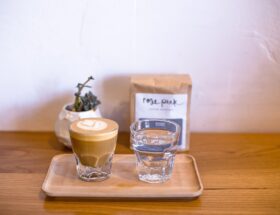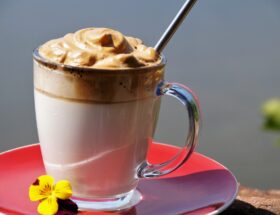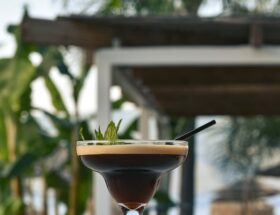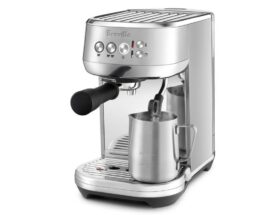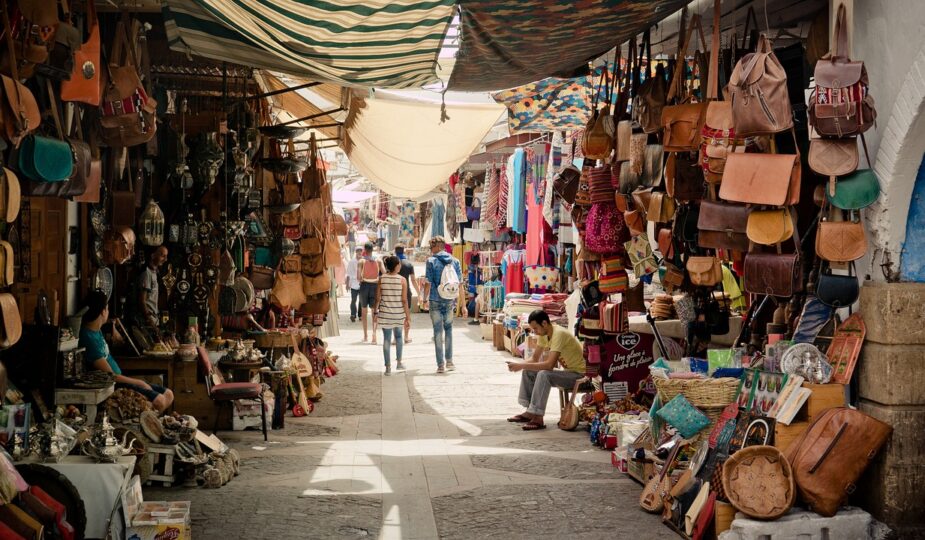
How to Morocco’s Spiced Coffee Enchanting Rituals!
If you have been yearning for an exotic coffee experience, a journey to taste and savor the distinct flavor profiles from different corners of the world, then you’re in the right place! Prepared to dive into the captivating realm of Morocco’s delightful spiced coffee rituals. A tradition heavily steeped in rich culture and warm hospitality, this beverage will enchant your taste buds and introduce you to fresh perspectives on coffee preparation and enjoyment.
Table of Contents
- The Essential Equipment for Moroccan Spiced Coffee
- Frequently Asked Questions
- 1. What makes Moroccan coffee unique?
- 2. What are the key ingredients in Moroccan coffee?
- 3. How is Moroccan coffee traditionally served?
- 4. What is the traditional Moroccan coffee-making ritual?
- 5. Where can I try authentic Moroccan coffee?
- 6. Can I make Moroccan coffee at home?
- 7. What type of coffee beans are used in Moroccan coffee?
- 8. Why is Moroccan coffee often served with sweets?
- 9. How long does it take to brew Moroccan coffee?
- 10. What are the health benefits of Moroccan coffee?
- Embrace the Aromatic Adventure!
An Interesting Fact
Did you know that coffee, a beverage universally recognized, has not always been part of Morocco’s culinary fabric? Ironically, the origin of this aromatic beverage lies in the neighboring continent of Africa – in Ethiopia, to be precise! Introduced much later by traders, coffee, or ‘qahwa’, quickly became a staple in Moroccan households, and the manner of its preparation underwent unique modifications, resulting in the delightful spiced coffee we know today. Interesting, right? Let’s delve into the details of these enchanting rituals and traditions that transcend generations.
The Essential Equipment for Moroccan Spiced Coffee
Diving into the world of Moroccan spiced coffee may seem intimidating at first, but with the right equipment, it can be a delightful adventure. Here is a list of essential tools you’ll need to get started on your journey:
Coffee Grinder
Grinding your own beans allows you to control the coarseness of your grind, which is a key factor in brewing a perfect cup of spiced coffee. A burr grinder is recommended for its consistency and precision.
Moka Pot
Traditionally, Moroccan spiced coffee is brewed using a Moka pot. This stovetop coffee maker is used to brew coffee by passing boiling water pressurized by steam through ground coffee.
Spice Grinder
A spice grinder is essential to grind the spices used in Moroccan coffee. Freshly ground spices not only enhance the flavors, but also fill your kitchen with an intoxicating aroma.
Small saucepan
In the final steps of brewing Moroccan spiced coffee, you’ll need a small saucepan to combine and heat the coffee, spices, and sugar.
Equipped with these tools, you’re ready to start brewing your own Moroccan spiced coffee. It might take some practice, but soon you’ll be enjoying a cup of this exotic, flavorful coffee in the comfort of your own home.
The Allure of Moroccan Spiced Coffee
The allure of Moroccan spiced coffee lies in its unique blend of roasted coffee beans and fragrant spices. The combination of warm, aromatic spices and the rich, robust flavor of coffee creates a stimulating beverage that is both comforting and invigorating.
Step by Step Guide to Making Moroccan Spiced Coffee
To fully experience the enchanting world of Moroccan spiced coffee, it is essential to learn how to prepare it yourself. Here is a detailed guide to help you master this ancient ritual:
- Purchase high-quality, whole coffee beans. A medium roast is typically used for Moroccan spiced coffee.
- Obtain the necessary spices. Traditional Moroccan spiced coffee includes a mixture of black pepper, cloves, cardamom, cinnamon, and nutmeg. The spices should be ground to a fine consistency.
- Grind the coffee beans. For Moroccan spiced coffee, the beans should be ground very finely, similar to the consistency of powdered sugar.
- Mix the ground coffee with the spices. The ratio of coffee to spices can be adjusted to suit your personal taste, but a typical starting point is one part spice mixture to six parts coffee.
- Brew the coffee. Moroccan spiced coffee is traditionally brewed in a long-handled pot known as a dallah, but it can also be prepared in a regular coffee maker or French press.
- Sweeten the coffee. Moroccan spiced coffee is typically served very sweet. Sugar should be added to taste.
Experience the Ritual
Making Moroccan spiced coffee is just part of the experience. To fully appreciate this unique beverage, take the time to savor the rich, complex flavors and the warmth of the spices. Enjoy the moment, the aroma, and the taste as you immerse yourself in this ancient ritual.
Frequently Asked Questions
1. What makes Moroccan coffee unique?
Unquestionably, the distinctive flavor profile of Moroccan coffee sets it apart. This enticing blend is typically spiced with ingredients like sesame seeds, black pepper, and nutmeg, creating a magical fusion of flavors. The brewing method further enhances these flavors, making each sip a delightful experience.
2. What are the key ingredients in Moroccan coffee?
Besides coffee beans, Moroccan coffee boasts a medley of aromatic spices. Key among these are black pepper, sesame seeds, and nutmeg, although variations may include cinnamon, cardamom, or cloves. These spices not only enrich the taste but also infuse the coffee with a tantalizing aroma.
3. How is Moroccan coffee traditionally served?
Traditionally, Moroccan coffee is served in small cups, akin to the espresso cups we’re familiar with. It’s often accompanied by sweet pastries or dates, creating a balanced taste experience between the strong, spiced coffee and the sweet accompaniments.
4. What is the traditional Moroccan coffee-making ritual?
The coffee-making ritual in Morocco is a time-honored tradition. It begins with the roasting of green coffee beans, followed by grinding them into a fine powder. The coffee is then simmered with spices and water in a special pot called a dallah. The coffee is then poured into a pot and served in small cups. This ritual not only enhances the flavor but serves as a symbol of hospitality and friendship.
5. Where can I try authentic Moroccan coffee?
While the best place to try authentic Moroccan coffee is undoubtedly in Morocco, many specialty coffee shops around the world have started to offer this exotic blend. Alternatively, you can try making your own Moroccan coffee at home by following traditional recipes and sourcing high-quality spices.
6. Can I make Moroccan coffee at home?
Yes, making Moroccan coffee at home is not only possible but also a fun and rewarding experience. You’ll need green coffee beans, a variety of spices (black pepper, sesame seeds, nutmeg), a grinding mill, and a dallah. With the right ingredients and tools, you can recreate the enchanting Moroccan coffee ritual right in your own kitchen!
7. What type of coffee beans are used in Moroccan coffee?
While there is no strict rule about the type of coffee beans used in Moroccan coffee, Arabica beans are commonly used due to their superior flavor and aroma. However, the key to authentic Moroccan coffee lies more in the unique blend of spices and the traditional brewing method than the specific type of coffee bean.
8. Why is Moroccan coffee often served with sweets?
The strong, spiced flavor of Moroccan coffee pairs excellently with sweet pastries or dates. The sweetness of these accompaniments helps balance the robust flavors of the coffee, creating a harmonious taste experience. Plus, sharing sweets and coffee is a sign of hospitality in Moroccan culture.
9. How long does it take to brew Moroccan coffee?
Brewing Moroccan coffee is a labor of love that can take anywhere from 15 to 25 minutes. This includes the time to roast and grind the coffee beans, simmer the coffee with spices, and let it steep to fully infuse the flavors. Despite the time commitment, the result is a rich, aromatic coffee that is well worth the wait.
10. What are the health benefits of Moroccan coffee?
Aside from its stimulating effects, Moroccan coffee also packs several health benefits. The spices used, such as black pepper and nutmeg, have anti-inflammatory and antioxidant properties. Plus, coffee itself is a great source of antioxidants. However, as with any caffeinated beverage, it’s best to enjoy Moroccan coffee in moderation.
Embrace the Aromatic Adventure!
Intricately woven with flavor and tradition, Moroccan spiced coffee represents so much more than a morning pick-me-up or after-meal treat. It’s a symbol of hospitality, a testament to Morocco’s rich culture, and a humble ingredient in countless shared memories.
Join the Conversation!
We invite you to delve deeper into the diverse world of coffee rituals. Share your experiences, nuances you have discovered, or simply express your love for coffee on our Ten Coffees forum.
Whether you’ve been brewing Moroccan spiced coffee for years or you’re just getting started on your aromatic journey, we welcome your comments, tips, and questions. Just as the coffee ritual brings us together in daily life, let us build a community here. Then, let’s brew up new friendships and continue to learn from each other’s experiences.
Final Thoughts…
The magic of Moroccan spiced coffee extends far beyond its enticing flavors. By partaking in this tradition, we become part of a time-honored ritual that celebrates connection, hospitality, and the rich tapestry of Moroccan culture.
So, brew a cup, savor the distinctive taste and let’s enjoy the journey!

